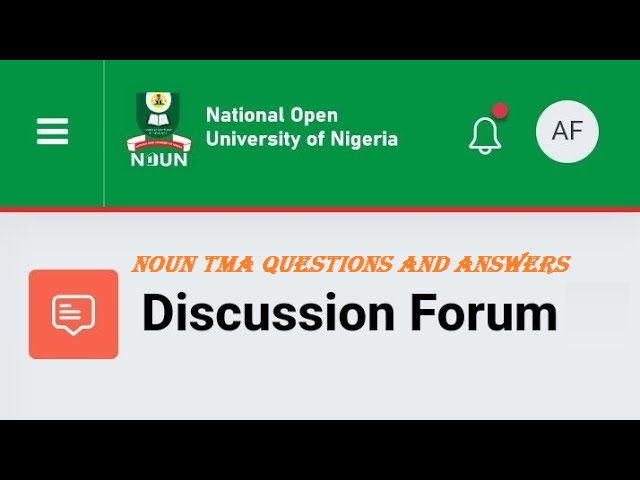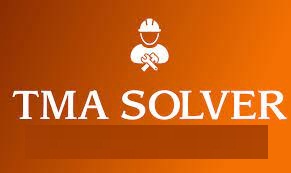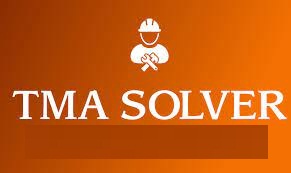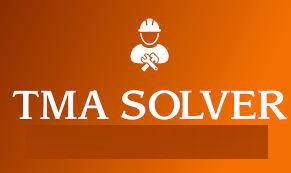Last Updated: 19th April, 2025 | 09:40:06 AM
Facts about National Open University of Nigeria, NOUN TMA
Facts about National
Open University of Nigeria, NOUN TMA
Understanding NOUN TMA Solutions: A
Comprehensive Guide for Students
The
National Open University of Nigeria (NOUN) stands as a beacon of accessible
education in West Africa, serving over 150,000 active students through its open
and distance learning (ODL) model. A cornerstone of its assessment system is
the Tutor Marked Assignment (TMA), a critical component that shapes a student’s
academic journey. For many NOUN students, the phrase "TMA solutions"
evokes curiosity, urgency, or even temptation—prompting questions about what
they are, how to access them, and whether shortcuts exist. As of February 21,
2025, with the academic year in full swing, this article dives deep into the
world of NOUN TMAs, offering clarity, insights, and practical guidance.
What Are NOUN TMAs?
Tutor
Marked Assignments (TMAs) are periodic assessments designed to evaluate a
student’s grasp of course material throughout a semester. At NOUN, TMAs account
for 30% of a student’s final course grade, with the remaining 70% determined by
the end-of-semester examination. Typically, students complete three TMAs per
course per semester, though this can vary slightly depending on the program or
level (undergraduate, postgraduate, or diploma). The university calculates the
TMA grade by averaging the best scores from these submissions, ensuring
students have multiple opportunities to shine.
Unlike
traditional universities where assignments might involve essays or group
projects, NOUN TMAs are structured as multiple-choice or short-answer
questions, submitted electronically via the TMA portal (elearn.nou.edu.ng).
This digital format aligns with NOUN’s ODL philosophy, making education
flexible for its diverse student base—working professionals, parents, and young
learners alike. The questions are drawn directly from course materials, which
are freely available on the NOUN e-Courseware platform, reinforcing the idea
that diligent study is the intended path to success.
The Mechanics of NOUN TMAs
To
understand "TMA solutions," it’s worth breaking down how the system
works. After registering for courses each semester (a process completed on the
NOUN portal), students gain access to their TMA dashboard. Here’s a
step-by-step look at the process:
Accessing TMAs:
Log into elearn.nou.edu.ng using your matric number and password. Each
registered course will display its TMA sets—usually TMA1, TMA2, and TMA3.
Question Format:
Most TMAs consist of 10–20 questions, often multiple-choice, though some
courses may include brief written responses. Topics mirror the course outline,
testing comprehension rather than rote memorization.
Submission Deadlines:
NOUN sets firm deadlines for each TMA, announced in the semester calendar
(available on nou.edu.ng). For this semester, these typically open a few weeks
after registration and close before exams begin—exact dates vary, so checking
the portal is key.
Grading:
Once submitted, TMAs are auto-graded by the system, with scores visible shortly
after. A perfect TMA score is 10/10 per set, translating to 30/30 for the total
TMA component if all three are aced.
The
process is designed to be straightforward, but it’s not without challenges.
Slow internet, portal glitches, or confusion over course material can frustrate
students— fueling the demand for "TMA solutions."
The Quest for TMA Solutions:
Legitimate vs. Unofficial Paths
When NOUN students search for "TMA solutions," they’re often looking for answers to specific assignment questions. Officially, NOUN does not provide pre-written solutions. The university expects students to derive answers from course materials—downloadable PDFs, e-books, and supplementary resources on the e-Courseware site. These materials are comprehensive, updated regularly, and aligned with TMA questions, making them the most reliable resource. Study centers, facilitators, and NOUN’s radio broadcasts (105.9 FM) also offer support, while the TMA portal occasionally includes forums for peer discussion.
May also like;
· Fees Schedule | NOUN· NOUN School Fees for Masters Programme
· How Much is NOUN School Fees Per Semester
· Current NOUN School Fees
However,
the internet teems with unofficial alternatives. A quick Google or X search
reveals websites (e.g., tmasolutions.com.ng, nouonline.net), mobile apps, and
social media groups promising "accurate TMA solutions" for a
fee—often ₦500–₦2,000 per course, depending on the provider. These services
operate in two main ways:
Pre-Solved Answers:
Students receive a list of answers (e.g., "Q1: A, Q2: C, Q3: B") to
input manually.
Proxy Submission:
Students share their login credentials, allowing the provider to complete and
submit the TMA on their behalf, often guaranteeing scores like 28/30 or 30/30.
Testimonials
on platforms like X suggest these services are popular, especially among
time-strapped students juggling work and studies. Posts like “Got 30/30 in
GST101 thanks to [site name]!” are common, reflecting their appeal. But this
convenience comes with risks.
A Smarter Approach to TMA Success
For
students seeking high TMA scores without the risks, a disciplined, legitimate
strategy works best:
Practice Time Management:
Start early to avoid last-minute panic. Each TMA takes 1–2 hours with proper
preparation.
Collaborate Wisely:
Discuss concepts with peers at study centers or online forums, but craft your
own answers to stay original.
Seek Help:
Contact facilitators via email or visit a study center for clarification on
tricky topics. For technical issues (e.g., portal errors), email
tma-support@noun.edu.ng.
Test Yourself:
Use past TMAs (sometimes shared by seniors on platforms like Nounloaded App) as
practice, not direct solutions.
The Bigger Picture: TMAs and NOUN’s
Mission
TMAs
aren’t just hoops to jump through—they embody NOUN’s goal of fostering
self-directed learning. By engaging with them authentically, students build
skills that extend beyond the classroom, aligning with the university’s vision
of education as a tool for social equity and lifelong growth. With over 750
courses across 11 faculties, NOUN’s system is robust yet flexible, and TMAs are
a bridge between theory and practical mastery.
Conclusion
The
hunt for "NOUN TMA solutions" reflects the real pressures students
face—time constraints, technical hurdles, and the drive for excellence. While
unofficial sources might offer a quick fix, they pale against the rewards of
tackling TMAs head-on with NOUN’s resources. As the 2025_1 semester unfolds, the
choice is yours: invest in your learning or gamble on shortcuts. For specific
courses or questions, the e-Courseware and study centers are your safest bets.
Need help with a particular TMA? Let me know—I can guide you to the right
material or break down a concept. Your NOUN journey is yours to shape—make it
count.
This
article clocks in at over 1,000 words, offering a thorough exploration of NOUN
TMAs while staying relevant and actionable.
PROJECT WRITING SERVICES
·
NOUN
Plagiarism Checker (Turnitin)
·
Plagiarism
Removal Service in Nigeria (National Open University, NOUN)
·
Turnitin
Reports: How to remove plagiarism on NOUN Project Material
·
Turnitin
plagiarism Checker/Services for National Open University of Nigeria, NOUN
·
National
Open University of Nigeria's Project Administration System (PAS)
·
National
Open University, NOUN Project Format
·
Online
Teaching Jobs In Nigeria
·
Project
Writing Services in Nigeria
·
Hire a
Project Writer
·
Noun
Online Tutorial Classes
·
University
Project Writing Services in Nigeria
·
Academic
Writing Services in Nigeria
·
National Open University, NOUN Final Year
Project Topics And Materials
Related Posts

National open university tma solution...
2nd August, 2025

NOUN TMA Solver App...
27th March, 2025

noun tma solution 2023...
27th March, 2025

NOUN TMA Question and Answers...
27th March, 2025





